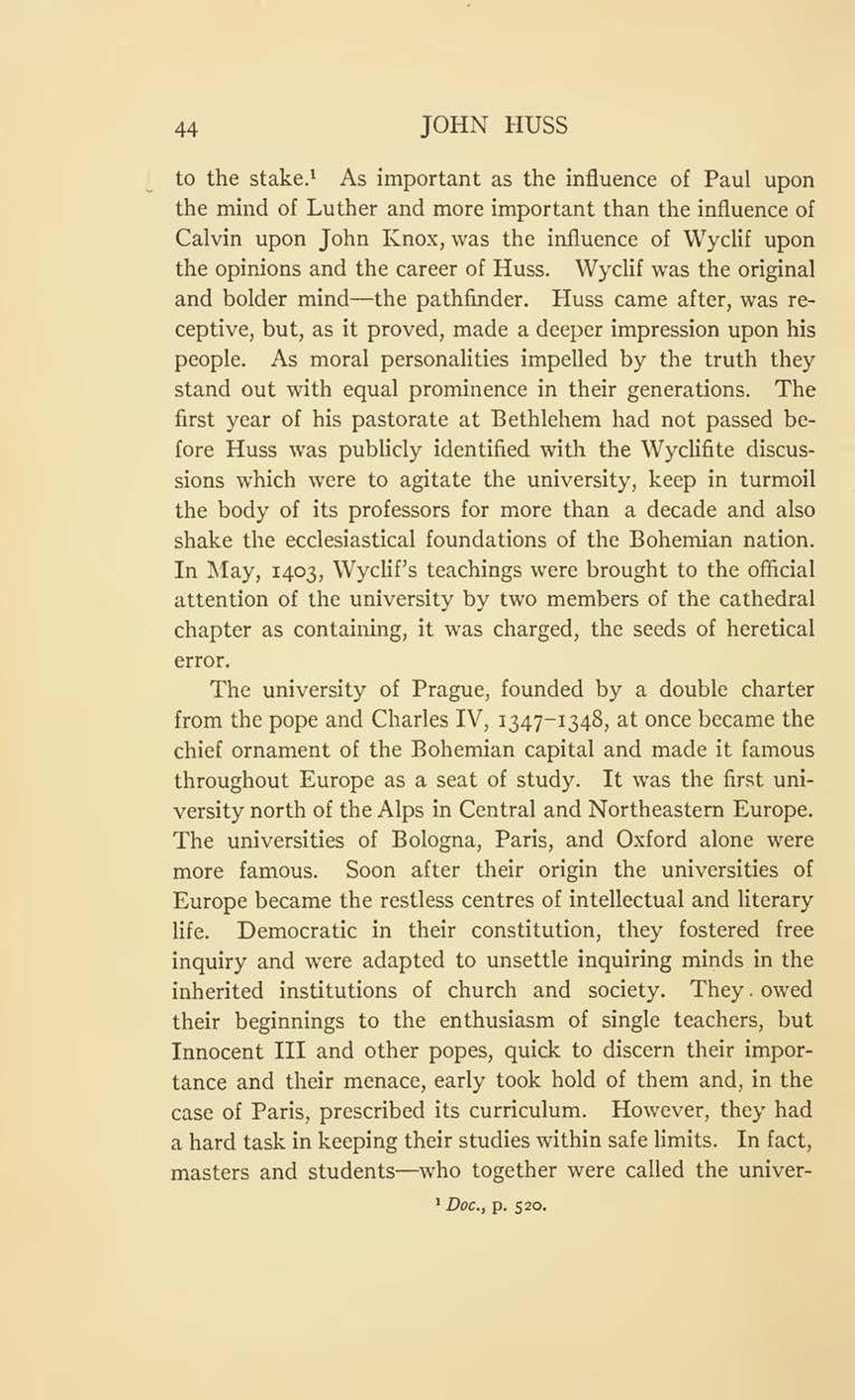to the stake.[1] As important as the influence of Paul upon the mind of Luther and more important than the influence of Calvin upon John Knox, was the influence of Wyclif upon the opinions and the career of Huss. Wyclif was the original and bolder mind—the pathfinder. Huss came after, was receptive, but, as it proved, made a deeper impression upon his people. As moral personalities impelled by the truth they stand out with equal prominence in their generations. The first year of his pastorate at Bethlehem had not passed before Huss was publicly identified with the Wyclifite discussions which were to agitate the university, keep in turmoil the body of its professors for more than a decade and also shake the ecclesiastical foundations of the Bohemian nation. In May, 1403, Wyclif’s teachings were brought to the official attention of the university by two members of the cathedral chapter as containing, it was charged, the seeds of heretical error.
The university of Prague, founded by a double charter from the pope and Charles IV, 1347–1348, at once became the chief ornament of the Bohemian capital and made it famous throughout Europe as a seat of study. It was the first university north of the Alps in Central and Northeastern Europe. The universities of Bologna, Paris, and Oxford alone were more famous. Soon after their origin the universities of Europe became the restless centres of intellectual and literary life. Democratic in their constitution, they fostered free inquiry and were adapted to unsettle inquiring minds in the inherited institutions of church and society. They owed their beginnings to the enthusiasm of single teachers, but Innocent III and other popes, quick to discern their importance and their menace, early took hold of them and, in the case of Paris, prescribed its curriculum. However, they had a hard task in keeping their studies within safe limits. In fact, masters and students—who together were called the univer-
- ↑ Doc., p. 520.
